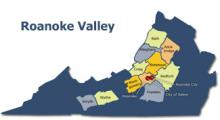
Fast, affordable Internet access for all.

After multiple delays, the much anticipated Roanoke-Salem fiber network in Virginia has its feet on the ground. The network has secured an executive director who will provide greater project oversight and find Internet service providers (ISPs) to operate on the open access network.
Now that the project is under way, it is moving at a rapid pace. The Broadband Authority already secured a contract for $2.9 million to lay the conduit for the fiber optic cable, and crews are already at work. By year’s end, the project should finally be complete.
Two years ago, a completion date seemed far-fetched. The cities of Roanoke and Salem and the counties of Roanoke and Botetourt met to discuss the growing problem of poor Internet access in the region. The area had the reputation for being in a "doughnut hole" - too large to qualify for federal grants but too sparsely populated to attract investment from large telecom providers. The city of Roanoke, for instance, ranked 409th out of 429 US metropolitan areas for basic Internet access.
Officials knew the situation was bad for economic development. Affordable, reliable broadband access could help grow, and keep, local companies in the region and attract new businesses and institutions - especially the important textile and manufacturing jobs that had driven the local economy for generations. The two cities and two counties came together to fund a $50,000 study. The study recommended the creation a Roanoke Valley Broadband Authority and a 60-mile, $8.2 million, open access network.
After the initial stage, disagreements between the entities complicated the project. Botetourt County already had open access fiber managed by Mid-Atlantic Broadband Communities Corporation and felt additional redundancy from another fiber line was not worth the investment. Botetourt County Administrator Kathleen Guzi:
“We don’t believe we need the redundancy yet.”
In Roanoke County, officials were hesitant to fund the network. Each government entity had agreed to provide $2 million to the project, and that presented a budget concern for Roanoke County. The county board also saw it as government encroachment on the private sector, distinct from an infrastructure project. Eventually, both Roanoke and Botetourt Counties withdrew from the project.
The cities of Roanoke and Salem expressed disappointment but acknowledged that they would move forward without the counties, according to Salem City Manager Kevin Boggess:
“If whatever we decide to do ends up going into a community that’s not fully participating, it’s still open access broadband for whatever business happens to be there. We’re not going to restrict anybody’s access to it. That’s the whole idea of this. We’re going to create something that’s open to every potential provider, every potential customer. It’s open access. That’s what it’s there for.”
After Botetourt and Roanoke counties withdrew, Roanoke and Salem entirely revamped the project. Scaling back the network to just 47 miles, they cut down the cost to less than $4 million. Salem's Municipal Electric Department uses existing fiber that can be integrated into the project, so the majority of the new fiber will run through Roanoke. Some of the fiber will still extend into parts of Botetourt and Roanoke counties.
The Virginia Resources Authority has issued a $6.2 million bond to cover the network’s construction and any unforeseen costs. Both cities have committed to repaying the debt on the bond until the network generates enough revenue to cover network costs and debt service.
From philosophical disagreements to changing plans, it has been a long road for the fledgling Roanoke-Salem network. Now with an executive director and a $6.2 million bond, the Roanoke Valley Broadband Authority should complete the 47-mile, open access network by the end of 2015.
